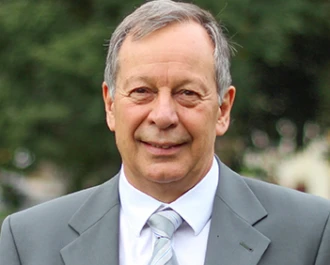
Dr Anabel Sorolla, from the Harry Perkins Institute of Medical Research in Perth, has a passion for developing new cancer treatments. The 2015 NBCF Postdoctoral Fellowship recipient works in the institute’s Cancer Epigenetics group, under the mentorship of Associate Professor Pilar Blancafort. Her work covers a range of techniques to develop “precision medicine”, or personalised treatments to improve outcomes for people with cancer.
“I have always been fascinated about cancer biology and trying to understand why cancer cells behave the way they do. This curiosity made me to pursue a PhD in cancer”, she said.
Dr Sorolla has recently been awarded a prestigious Marie Skłodowska-Curie Fellowship from the European Commission to undergo research in targeted nanoparticles for prostate cancer treatment at the University of Castilla-La-Mancha in Spain. Moreover, she has also received a five-years competitive fellowship “Miguel Servet” from the Spanish Ministry of Health. These follow her previous three-month Healy Research Collaboration fellowship in 2019, where she worked at the Spanish Research Council (CSIC) to develop new skills preparing and characterising state-of-art nanoparticles.
Nanoparticles are a key component of Dr Sorolla’s research. The specially engineered particles have been designed to have three actions. The nanoparticles are attracted to cancer cells, binding to specific protein receptors on the cell surface. They also have proteins on their surface that work to prevent cancer cells from proliferating and spreading, by blocking the “transcription factors” needed for growth. Finally, the nanoparticles can be loaded with chemotherapy drugs to actively kill the cancer cells. This three-pronged approach has the potential to provide more effective treatment with less side effects, a prospect which excites the young researcher.
“Currently patients are treated with very unspecific chemotherapy which also kills normal cells, bringing side-effects and complications”, she explains. “With my research, I am designing a more selective and more efficient treatment for these cancers using state of the art nanoparticles. With them, I hope to eliminate the deaths provoked by these cancers.”
In addition to nanoparticles, Dr Sorolla has investigated the use of marine compounds for cancer treatment, including sea sponges, plants, bacteria, fungi and marine invertebrates. Her recent review article, published in the journal Biomolecules, concluded that the ocean is “an invaluable source of anti-cancer compounds.”
Another natural resource which Dr Sorolla and her team are studying for its anti-cancer properties is honeybee venom. The team showed recently that the main protein in the venom, called melittin, can potently induce cancer cell death. It is effective in two of the most aggressive breast cancer subtypes – triple-negative and HER2+ (human epidermal growth factor receptor 2). This is particularly promising, as these types of cancer have limited treatment options at present. The findings have been published this year in Nature Precision Oncology.
Dr Sorolla has also worked on the design of next-generation cell penetrating peptides to deliver OmoMYC, a protein that can inhibit the activity of the transcription factor “MYC”. This factor is often overexpressed in triple-negative breast cancers, and it is hoped that this novel treatment may be able to be used to selectively target cancer cells in these patients. The team published these findings in the journal Oncogene.
The National Breast Cancer Foundation is proud to support young researchers such as Dr Sorolla. With brilliant minds like hers on the job, the future of breast cancer treatment looks bright.
More News Articles
View all News


